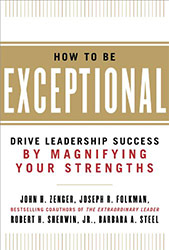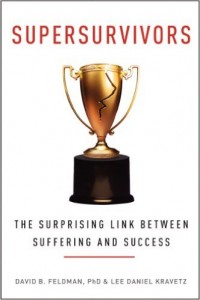Leadership From the Inside Out
 I loved the title of Cashman’s book, Leadership From the Inside Out. That captures the basic truth that leadership is about more than just developing a set of skills; it is just as integrally connected to the kind of people we are. A basic leadership truism is that “we reproduce who we are.” We reproduce ourselves in both people and organizations that we lead. So, paying attention to who we are, and letting that flow into what we do, is a critical ingredient for success.
I loved the title of Cashman’s book, Leadership From the Inside Out. That captures the basic truth that leadership is about more than just developing a set of skills; it is just as integrally connected to the kind of people we are. A basic leadership truism is that “we reproduce who we are.” We reproduce ourselves in both people and organizations that we lead. So, paying attention to who we are, and letting that flow into what we do, is a critical ingredient for success.
There were two particular insights I grabbed hold of here. The first is the importance of relationships for leadership success. Cashman said it this way:
Many of us have a difficult time breaking out of the self-limiting illusion that we are “the ones that make things happen.” All too often, successful, achievement-oriented people mistakenly believe they are the prime movers, the origin of accomplishments in their groups or organizations. Unfortunately, many driven leaders fail to comprehend how nothing is accomplished without engaging in relationships and appreciating the unique contribution of many, many people.
That is not to minimize the importance of what we personally bring to the table or of our efforts to make things happen. But every major achievement or success I can think of in my history has required the efforts of many other people, and none of them would have happened if it all depended just on me. To be effective as leaders, we must invest in relationships and in honoring those who work hard to make things happen. It appeals to our ego to be “the guy,” but if we don’t get past that, few things will happen the way they could.
The other thing that struck me was the importance of finding time to be quiet. I’ve been thinking about that a lot lately and have become convinced of the importance of being quiet for a leader to be effective. Cashman said it this way:
With no silence, there is no reflection. With no reflection, there is no vision. With no vision, there is no leadership. As counter-intuitive as it may seem, silence and reflection are actually performance pathways to more expanded vision and more effective, innovative leadership. As leaders, how often do we take the time to relax and to think?
Taking time to be quiet can feel unproductive. In our busy world, it seems like a luxury to take time away, not to work, but just to think (and by that I don’t mean the analytical thinking most of us do.) To take time to reflect, get in touch with the bigger picture or even just our own hearts seems counter-intuitive. But studies are now showing that regular times of non-agenda-driven quiet actually result in greater productivity, more creativity, and more peace, among other things. Rather than being a luxury, it seems like taking time for quiet is a necessity for any leader who wants to lead well.
So what do you think? Do you take time for quiet, or do you think you are too busy? Or was there something else that struck you?









